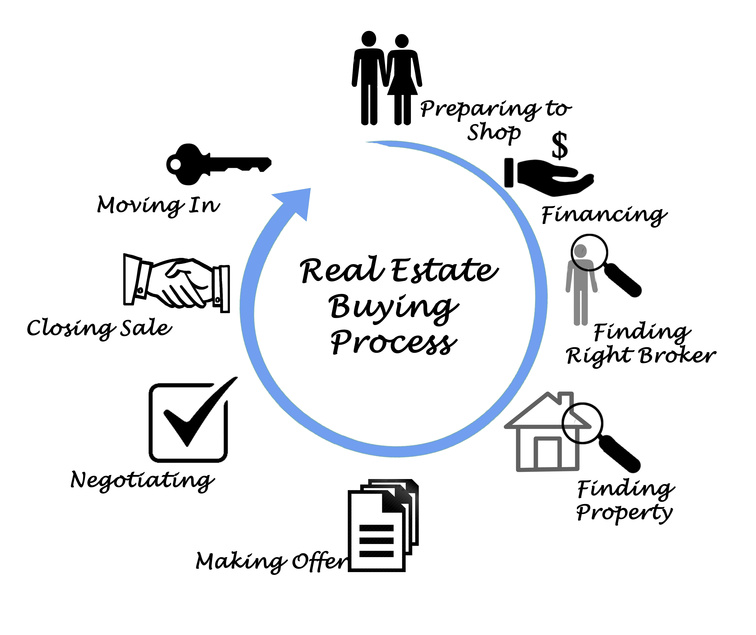The Duty of Hard Cash Loans in Property Purchases: What You Need to Know
Hard cash loans are a pivotal funding tool in realty purchases. They provide investors quick access to resources, especially in urgent circumstances. Secured by real property, these finances concentrate on property value as opposed to the consumer's credit background. However, they feature remarkable threats and prices. Comprehending the subtleties of difficult money fundings is crucial for any individual seeking to navigate this intricate financial landscape successfully. What aspects should investors take into consideration before continuing?
What Are Tough Cash Financings?
Hard cash finances function as an important financing choice in realty deals, especially for investors seeking fast access to capital. Unlike typical financings, hard cash finances are safeguarded by real estate and are mainly based on the value of the asset as opposed to the borrower's credit reliability. These financings are usually used by personal lenders or financiers, enabling debtors to bypass prolonged authorization processes connected with conventional financing.
Difficult cash fundings are often short-term options, with repayment periods ranging from a few months to a couple of years. Due to their expedited nature, they are prominent amongst property fins and those needing prompt funds for building acquisition or recovery. Rate of interest for difficult cash finances have a tendency to be more than typical financings, mirroring the increased risk lending institutions take on. Overall, hard cash fundings fulfill a vital duty in the actual estate market, dealing with those that call for adaptability and rate in their financing options.
Advantages of Hard Money Loans
While conventional financing can be slow-moving and difficult, tough money fundings use several distinct advantages that interest investor. One essential benefit is the rate of the financing process; finances can often be approved and funded within days, allowing investors to take opportunities quickly. This quick turnaround is particularly helpful in competitive markets where time is important.
Furthermore, hard cash lendings are mostly asset-based as opposed to credit-based, indicating that financiers with less-than-perfect credit report can still protect financing. This ease of access enables a broader array of capitalists to involve in realty purchases.
Tough money lenders commonly have more versatile terms and problems contrasted to conventional loan providers, permitting for personalized settlement plans tailored to individual project requirements. This adaptability can enhance a financier's capacity to manage capital efficiently throughout restoration or resale stages. On the whole, these advantages make tough money finances a compelling choice for many realty endeavors.
Possible Disadvantages to Take Into Consideration
While hard money finances can provide quick funding, possible drawbacks require cautious factor to consider. Borrowers usually deal with higher rate of interest contrasted to typical funding, which can increase general costs. Furthermore, the shorter repayment terms might push customers to secure refinancing or market the building sooner than anticipated.
Higher Rates Of Interest
Greater rates of interest represent a significant factor to consider in hard money finances, specifically in realty deals. These lendings usually feature prices that are considerably greater than standard funding options, typically varying from 8% to 15%. This elevated cost can influence the total success of a real estate investment, as consumers might locate themselves assigning a larger portion of their spending plan to interest payments. Furthermore, the high prices can produce difficulties for capitalists seeking to take advantage of their funding properly. For those that are not prepared for these economic implications, the worry of high-interest repayments can result in capital concerns, inevitably affecting the success of the building financial investment. Therefore, comprehending the ramifications of greater rate of interest rates is necessary for possible consumers.
Much Shorter Repayment Terms
Much shorter payment terms are a defining attribute of hard cash fundings, which can present different difficulties for consumers. Commonly ranging from 6 months to three years, these terms need customers to pay back the financing promptly, often causing economic strain. The pressure to create returns within a limited timeframe can push borrowers to hurry home remodellings or sales, possibly jeopardizing the top quality of the investment. Additionally, the requirement of a swift leave approach might restrict options for refinancing or selling, leading to higher threats. Consumers must very carefully consider their economic abilities and market conditions to stay clear of back-pedaling these car loans, which can result in the loss of the collateralized residential property.
Exactly How Difficult Cash Car Loans Work
Difficult money loans operate through an unique structure that prioritizes property value over creditworthiness. The approval procedure is generally swift, enabling customers to accessibility funds rapidly compared to conventional financing. Furthermore, an assessment of interest prices exposes that tough cash fundings often carry higher expenses, mirroring the boosted risk taken by lending institutions.
Car Loan Structure Discussed

In realty transactions, recognizing the framework of hard money loans is necessary for financiers seeking quick financing. Difficult cash finances are normally protected by property, with the residential or commercial property acting as collateral. These fundings typically involve greater rate of interest contrasted to traditional financing, showing the boosted danger taken by lending institutions. The loan terms are generally brief, usually varying from six months to three years, assisting in quick accessibility to funding. Funding quantities can differ considerably, typically relying on the residential or commercial property's worth as opposed to the borrower's creditworthiness. Capitalists benefit from the expedited authorization procedure, enabling them to seize investment possibilities quickly. In general, the framework of tough cash loans deals with those needing fast, adaptable funding options in genuine estate markets.
Authorization Refine Overview
The approval procedure for tough money finances is unique from typical lending methods, largely concentrating on the collateral instead than the customer's credit account. Lenders assess the worth of the residential property being made use of as collateral, guaranteeing it meets their standards for risk analysis. Once a property is recognized, borrowers submit a car loan application that includes information regarding the residential property and the meant use funds (Georgia hard money lenders). The lending institution carries out a quick assessment and might require added documentation, however the procedure is generally accelerated contrasted to standard lendings. Authorization often occurs within days, enabling customers to accessibility funds rapidly. This structured strategy is valuable genuine estate investors seeking quick financing options for procurement or renovation projects
Rates Of Interest Comparison
While difficult cash lendings use fast accessibility to funds, their rates of interest are normally greater than those of typical mortgages. Borrowers can anticipate prices varying from 8% to 15%, depending upon the lender and the specifics of the transaction. On the other hand, conventional mortgage prices usually fall in between 3% and 6%. The greater rates connected with hard cash loans mirror the enhanced danger lenders take, as these fundings are commonly protected by the home itself instead than the consumer's creditworthiness. This suggests that while hard money fundings can promote speedy financing for genuine estate financial investments, they can also result in considerably greater prices find more information over time, making it vital for debtors to carefully evaluate their monetary circumstance prior to proceeding.
When to Utilize Tough Money Lendings
When is it prudent to contemplate tough money lendings in actual estate transactions? Investors often think about these fundings in scenarios where standard funding is either not available or impractical. As an example, hard money car loans can be beneficial for properties needing quick procurement, such as repossession auctions or distressed residential or commercial properties needing immediate restorations.
In addition, investor seeking to capitalize on time-sensitive possibilities, like flipping homes, might Get More Information locate difficult cash lendings helpful as a result of their expedited authorization process. In addition, customers with less-than-perfect credit or unique homes may also select tough money financing, as lending institutions mostly focus on the residential or commercial property's value as opposed to the customer's financial background.

Tips for Choosing a Hard Money Lending Institution
How can financiers assure they pick the ideal hard money loan provider for their property needs? Complete research study is important. Investors need to assess potential loan providers by examining their experience, reputation, and client reviews. It is a good idea to look for out lending institutions who specialize in the sort of residential or commercial property being financed, as this can improve the probability of positive terms.
Next, comprehending the lender's problems and terms is considerable. Investors must ask about rates of interest, charges, and payment timetables. Clear communication is vital; loan providers ought to want to clarify any kind of uncertainties.
Furthermore, evaluating the loan provider's financing speed and versatility can be valuable, particularly in competitive markets. Investors should likewise consider building a connection with the lending institution, as an excellent connection can assist in smoother transactions. Ultimately, getting in touch with market experts or realty agents can give further understandings and recommendations, guaranteeing an educated choice.
Often Asked Concerns
Can Hard Cash Loans Be Utilized for Commercial Features?
Difficult cash financings can certainly be used for business buildings, offering fast financing choices for financiers - Georgia hard money lenders. These fundings are normally protected by the residential property itself, permitting consumers to accessibility funds without typical lending needs
What Is the Regular Loan-To-Value Ratio for Hard Money Loans?
The normal loan-to-value proportion for tough cash lendings typically ranges from 60% to 75%. This ratio varies based on the building kind, lender plans, and individual consumer circumstances, mirroring the higher danger linked with these fundings.
Are Difficult Money Fundings Offered to Newbie Buyers?
Difficult money fundings can be obtainable to newbie property buyers, though terms differ check this by lending institution. These finances frequently have greater interest rates and much shorter settlement durations, making them a less conventional option for brand-new purchasers.
Exactly How Swiftly Can I Shut on a Difficult Money Lending?
The speed of closing on a tough cash loan can differ, yet commonly it ranges from a few days to a number of weeks, depending upon the lender's requirements and the debtor's financial circumstance. (Georgia hard money lenders)
What Documents Are Needed to Apply for a Hard Cash Funding?

Unlike standard financings, tough money lendings are safeguarded by real building and are primarily based on the value of the possession rather than the borrower's credit reliability. Rate of interest prices for difficult money finances often tend to be greater than traditional car loans, reflecting the increased threat lenders undertake. The approval procedure for hard cash financings is distinct from typical lending approaches, largely focusing on the collateral instead than the customer's credit profile. The higher prices connected with tough money car loans reflect the increased threat lending institutions take, as these finances are typically safeguarded by the building itself rather than the debtor's credit reliability. To apply for a difficult money loan, debtors generally require to give home information, a loan application, proof of revenue, debt history, and identification.